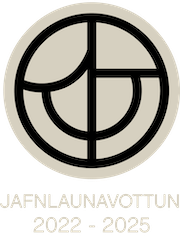Hugsanastjórn og stýriferli í áráttu- og þráhyggjuröskun - verkefni lokið
Fréttatilkynning verkefnisstjóra
Heiti verkefnis: Hugsanastjórn og stýriferli í áráttu- og þráhyggjuröskun
Verkefnisstjóri: Paul M. G. Emmelkamp, University of Amsterdam
Tegund styrks: Verkefnisstyrkur
Styrkár: 2010-2012
Fjárhæð styrks: 10,8 millj. kr. alls
Tilvísunarnúmer Rannís: 100633

The research project Thought control and executive control processes in OCD has been completed, but the project was funded by a three year research grant from RANNÍS, awarded to Dr. Paul Emmelkamp, University of Amsterdam, and Dr. Árni Kristjánsson and Dr. Daníel Þ. Ólason at the University of Iceland.
A series of studies was designed to test specific hypothesis involving the interaction between thought suppression and cognitive ability and to use a novel experimental paradigm –replacement of intrusive thoughts, to study thought control. Results in the project indicate that specific neuro-cognitive sub-processes (i.e. cognitive inhibition) may play a role in the efficiency of thought control strategies used to deal with intrusive thoughts and that thought replacement may be useful to investigate problems with the control of intrusive negative thoughts in relation to OCD pathology. This finding may have implications for treatment since there is emerging evidence, for example in the field of anxiety disorders, that cognitive ability can be trained in computerised assignments, and this training may result in more efficient control of thoughts. The results of the research project have been described in three scientific publications to date.
List of publications:
Ólafsson, R.P., Snorrason, Í., Bjarnason, R.K., Emmelkamp, P.M.G., Ólason, D.Þ., & Kristjánsson, Á. (2014). Replacing Intrusive Thoughts: Investigating Thought Control in Relation to OCD Symptoms. Journal of Behavior Therapy and Experimental Psychiatry, 45, 506-515.
Ólafsson, R.P., Arngrímsson, J.B., Árnason, P., Kolbeinsson, Þ., Emmelkamp, P.M.G., Kristjánsson, Á. & Ólason, D.Þ. (2013). Validity and factor structure of the Dimensional Obsessive Compulsive Scale (DOCS) and its relationship with obsessive beliefs. Journal of Obsessive-Compulsive and Related Disorders, 2, 149-156. DOI: dx.doi.org/10.1016/j.jocrd.2013.02.001
Ólafsson, R.P., Emmelkamp, P.M.G., Gunnarsdóttir, E.R., Snæbjörnson, Þ., Ólason, D.Þ. & Kristjánsson, Á. (2013). Suppressing disgust related thoughts and performance on a subsequent behavioural avoidance task: Implications for OCD. Behaviour Research and Therapy, 51, 152-160. DOI: 10.1016/j.brat.2012.11.008


